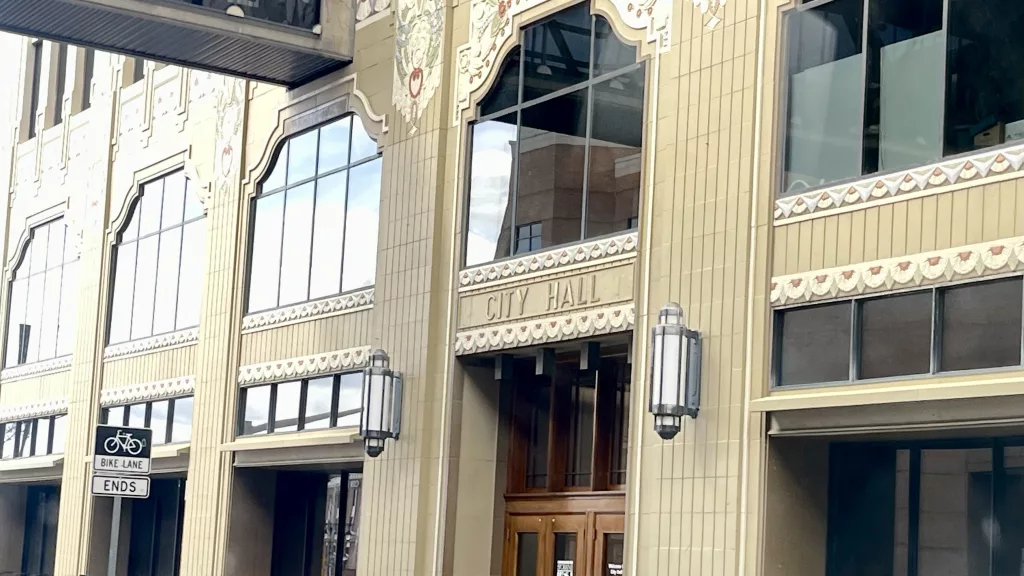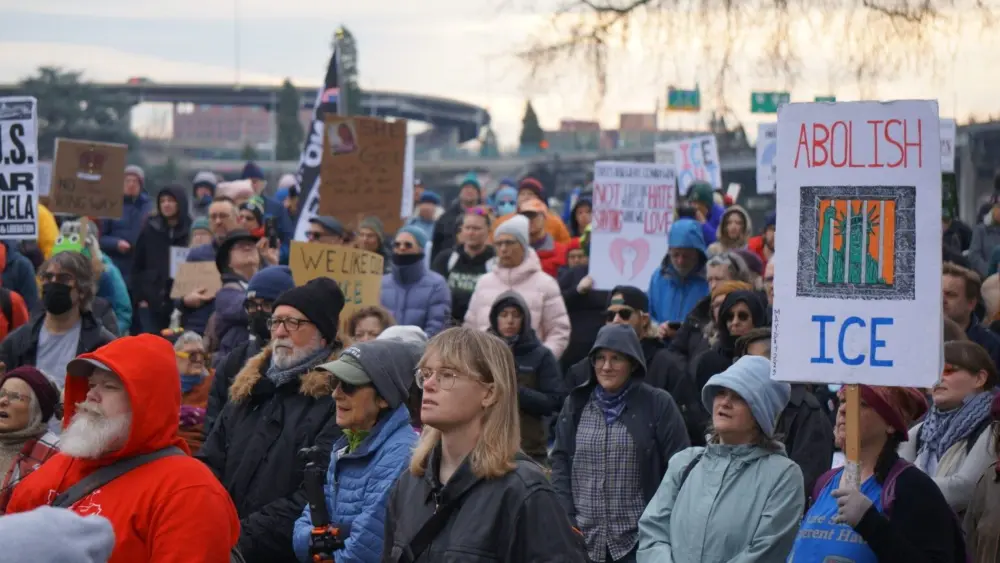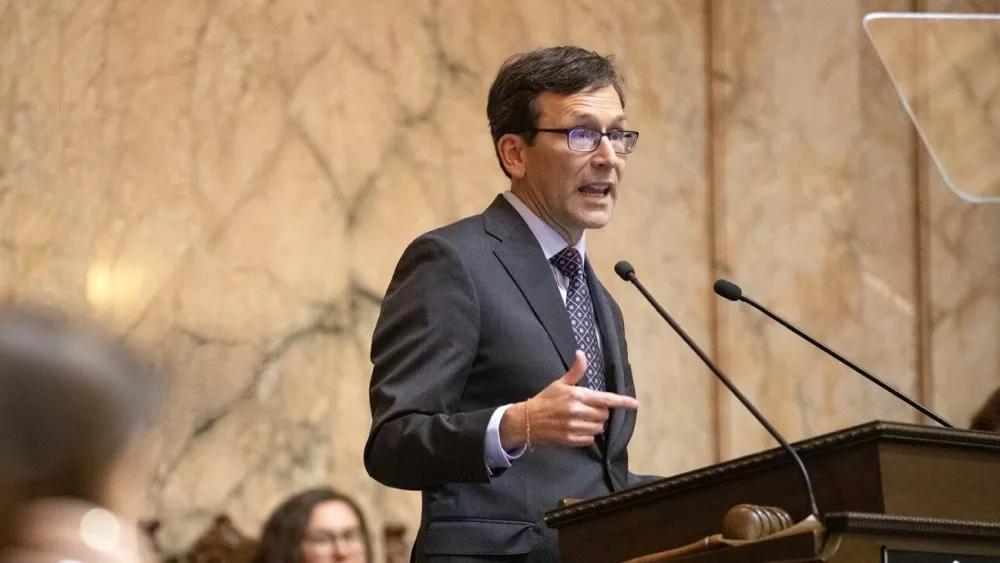SPOKANE, WA – After months of gathering feedback, Mayor Lisa Brown’s new homelessness strategy landed on the Spokane City Council’s desk on Monday, setting the stage for weeks of contentious debate.
If approved, the ordinances would revamp the city’s approach to homelessness. The overhaul would adjust several policies, from opening shelters to regulating public camping. However, some council members remain skeptical after Brown’s big announcement last Thursday.
Councilmembers Jonathan Bingle and Michael Cathcart didn’t catch wind of the mayor’s overhaul until hours before the unveiling. Brown held a private press conference with the media that Wednesday but didn’t invite either conservative, fueling divisions among the officials.
Cathcart and Bingle often go head-to-head with the council majority over homelessness, calling out a lack of transparency and collaboration. The officials dug through all three proposals during a committee meeting on Monday, adding a fourth to ban “aggressive solicitation.”
Each ordinance will reach the council’s legislative agenda for a vote over the coming weeks.
H.O.M.E. Starts Here Initiative
The first proposal would reposition the city’s homelessness strategy under four pillars: healthcare, outreach, multidisciplinary engagement and economic security. While largely aspirational, the H.O.M.E. Starts Here Initiative prioritizes access to treatment and services over citations.
If approved, the ordinance would put several goals into law while defining a glossary of terms, such as redlining. It acts as the cornerstone of the strategy, leaving enforcement up to the other proposals, although it does call for coordination between agencies to prevent encampments.
The proposal outlines more than 20 goals, generally calling for expanding the housing supply and services under the scattered-site model, building a data-driven system, integrating public safety teams with social services and improving economic security through job training and other means.
Inclement Weather, Siting and Good Neighbor Agreements
The second proposal shifts when the city activates surge shelters during extreme weather, from a specific temperature to index measures, like how hot or cold it actually feels. However, it also sets new rules for siting new shelters that require public meetings with residents before opening.
If approved, any facility receiving at least $50,000 annually from the city must convene at least one public meeting and receive council authorization before opening a location. Similar to a law that the state recently struck down, it prohibits facilities within 1,000 feet of any school.
The ordinance exempts existing services from most provisions, except for good neighbor agreements. If approved, the facility operators must adopt a contract fostering communication between the city and the operator to address safety concerns and resolve disputes with the neighborhood.
The contract must include the operator and representatives from the city’s Community, Housing, and Human Services Department and the Office of Neighborhood Services; however, it may also include police, the council, nearby businesses and property owners, among others.
Unlawful Camping
The third proposal repeals the city’s “Sit & Lie” and pedestrian interference laws, which Cathcart and Bingle have continually called for more enforcement. Similar to those, this would prohibit people from knowingly obstructing access to public property.
You won’t get in trouble for waiting in line for the bus, but you could receive a citation if you block a walkway and refuse to comply with an officer. However, if you accept treatment or housing services from a city-designated provider, the ordinance says police can’t cite you.
Unauthorized encampments are handled differently under the proposal, requiring a seven-day notice before citing or breaking up the group unless there is a significant risk to public safety.
Aggressive Solicitation
The last measure proposed Monday would recodify provisions banning aggressive solicitation if the council repeals the pedestrian interference law.
According to the ordinance, “Aggressive solicitation means to solicit anything of value and intentionally engage in conduct that would likely intimidate a reasonable person, including but not limited to touching, following, persistently soliciting anything of value after being refused, using violent or threatening language or gestures, or taking similar actions to induce compliance with the solicitation.”





